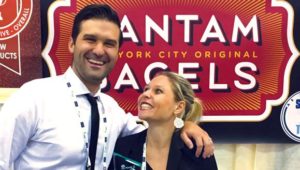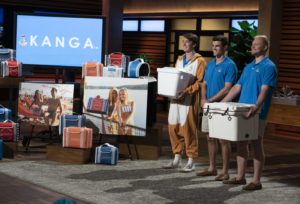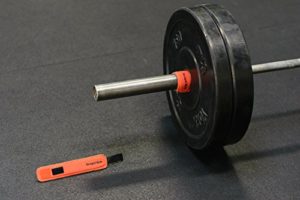
“What you have here is stupid on a stick,” Mark Cuban told Alex and Riad. Alex jokingly cracked back, “Well, actually we have stupid on a potato.”
Alex Craig and Riad Bekhit came into the Tank seeking $50,000 for 10% equity. Their ages are unknown but they seem to be fresh out of their first jobs after college. The company is called Potato Parcel and they ship raw potatoes with a message on them. A customer can put a picture on the potato as well. They have different lines, such as the sweet potato for Valentine’s Day. They exemplified this during the Shark Tank pitch by writing on Lori’s potato, “Lori, will you be my sweet potato?”
Alex actually sold the business to Riad for $41,000 and negotiated a royalty for $1 unit sold for six months after the TV airing. In my opinion, this was very smart of him, but also smart of Riad too. They both benefited from this; all (exceptions allowed) of trade is mutually beneficial according to value scales. The Sharks got a crack at this and were making fun of the two entrepreneurs. Kevin O’Leary asked, “What happened to your careers? What went wrong?” Riad and Alex laughed at themselves as well. They ignored the unimportant comments or they added to it. Robert Herjavic asked, “Did anybody buy the potato message?”
“To date, we’ve sold over 12,000 potatoes and put 12,00 smiles and expressions of confusion on people’s faces.”
Mark Cuban asked, “How much revenue have you guys generated since you started?”
“So, in the past 13 months, we’ve done $215,000 in sales.” They actually reinvested the money to pay for inventory, hiring, and to help order fulfillments.
Mark Cuban then said, “So seriously though, you do 215,000 real dollars, and rather than just thinking, we just made out like bandits, let’s just put the money in our pocket, you keep thinking you’re gonna keep the business growing?” Everyone laughed, including the entrepreneurs.
Later Cuban asked what Riad’s parents thought of this. He replied, “So I had to really sell them on this because they saw it was a waste of money, all of my peers thought this was something stupid.”
Then after more dialogue, two sharks went out just simply because they couldn’t take this seriously. Cuban, in deep thought, said how it wasn’t completely crazy. “If you think the potato business is a growth industry, it’s fair!” Long story short, they got a deal with Kevin O’Leary for $50,000 in exchange for a 10% stake and a royalty.
Three years since they aired on Shark Tank, they’ve earned more than $700,000. They’re still in business today, and it appears that Riad is actually making a living off of selling stupid on a potato. It’s fairly easy to come up with an idea like that, but what you really need is hard work. Anything is possible with God and hard work. So if any of you are looking for a Christmas present to give to someone, look no further!
https://sharktanktales.com/potato-parcel-shark-tank/
https://www.hulu.com/watch/a9af8886-4acf-40fb-a717-804b8ada56b9






